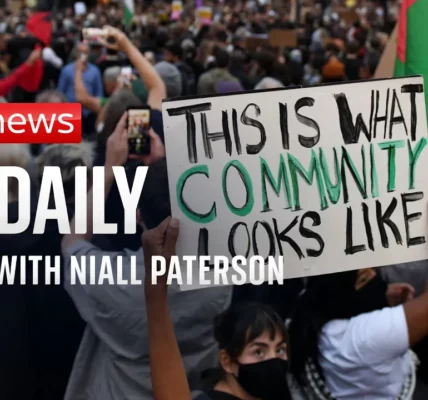Fear at the Funerals: Panic in Lebanon After Explosions

This article delves into the recent tragic incidents in Lebanon, where electronic devices turned into bombs have caused chaos and fear among civilians. The ongoing conflict in the Middle East, particularly the tension between Israel and Hezbollah, is explored in detail.
Introduction
The recent escalation of violence in Lebanon has sent shockwaves through the region. As Israel declares a new phase in its ongoing conflict, the streets of Lebanon are filled with panic and fear. The tragic explosions, which have targeted the militia of Hezbollah, have not only claimed lives but have also raised serious concerns about civilian safety and the future of the region. This article will provide an in-depth analysis of the incidents, the political ramifications, and the broader implications for the Middle East.
Recent Explosions in Lebanon
On a day that should have been marked by mourning, chaos erupted in Lebanon following a series of explosions linked to handheld radios and electronic devices. The explosions occurred during funerals, resulting in at least 20 fatalities and hundreds of injuries, causing widespread panic among the attendees.
The Nature of the Explosions
Initial reports indicate that the devices, originally intended for communication, were transformed into deadly explosives. The rapid succession of explosions not only targeted individuals but also instigated a national state of fear, affecting countless families and communities.
The Impact on Civilian Life
- At least 20 confirmed deaths.
- Over 450 individuals injured, many with severe injuries.
- Emergency services overwhelmed, with hospitals on high alert.
- A growing fear of using electronic devices among the populace.
Political Context and Reactions
The Lebanese government has expressed outrage over the indiscriminate attacks that have led to civilian casualties. The situation has escalated tensions between Lebanon and Israel, with both sides blaming each other for the rising violence.
Hezbollah’s Response
Hezbollah, a powerful militia and political party in Lebanon, has vowed to retaliate against Israel for these attacks. Their response highlights the complexity of the conflict, with civilian populations often caught in the crossfire.
International Reactions
Global reactions have varied, with some nations condemning the violence while others remain silent, reflecting the geopolitical intricacies of the region. The U.S. has called for restraint, indicating the delicate balance of power in the Middle East.
The Role of Technology and Supply Chains
One of the most alarming aspects of these attacks is the use of common electronic devices as weapons. This raises significant concerns about the security of supply chains and the potential for everyday items to be manipulated for malicious purposes.
How Devices Were Weaponized
Experts suggest that the devices were tampered with prior to their distribution. This tampering involved embedding explosives and triggers within the devices, allowing them to be remotely detonated.
- Devices sourced from various international manufacturers.
- Allegations of infiltration in the supply chain.
- Potential links to international arms and technology networks.
Conclusion
The recent explosions in Lebanon are a stark reminder of the fragility of peace in the Middle East. The fear and turmoil experienced by civilians highlight the urgent need for dialogue and conflict resolution. As the situation evolves, it is crucial for international communities to engage constructively in seeking lasting solutions to prevent further tragedies.
For more in-depth coverage and analysis on this topic, please explore our related articles on the ongoing Middle East conflict and the implications of technology in warfare.
“`




